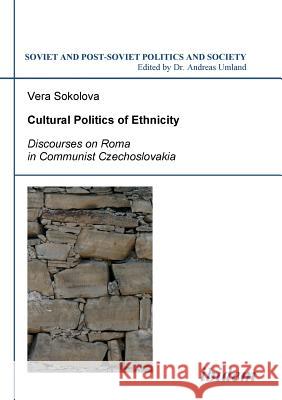Cultural Politics of Ethnicity. Discourses on Roma in Communist Czechoslovakia » książka
Cultural Politics of Ethnicity. Discourses on Roma in Communist Czechoslovakia
ISBN-13: 9783898218641 / Angielski / Miękka / 2008 / 314 str.
This book maps out the history of Czechoslovak linguistic and social practices directed at Roma during the communist period. It explains how contemporary Czech society has come to understand the Romani population in terms of inherited social, medical and juridical ideas. Rather than focusing on the Roma people as an object of analysis, the book problematizes assumed notions of Gypsiness and Czechness in mainstream society by highlighting the role of different socialist discourses in constructing images of Roma as socially deviant and abnormal. By uncovering the lines of continuity in the intersections of ethnic discrimination, social deviance and citizenship from the 1950s to the collapse of communism, this book comes to terms with a variety of questions that have not yet been adequately addressed in the literature: What underlying assumptions informed the socialist regimes understanding of Gypsiness, and how did these conceptions relate to notions of citizenship, equality and normality? How and why did the meaning of the terms Gypsies and Roma become imbued in popular discourse with ideas of unhealthiness and social deviance? What implications does translating perceived cultural traits and lifestyles of Roma into non-ethnic frames of reference have for understanding racism and ethnic sensibilities in the country today? The work emphasizes historical continuities between contemporary xenophobia and the strategies which the communist regime used to deal with the Gypsy question. Focusing on the discrepancies between written laws and policies as well as their implementation, this study exposes the intricate relationships between official beliefs, institutional policies and popular consciousness under the communist regime. For it was these relationships which together cre











